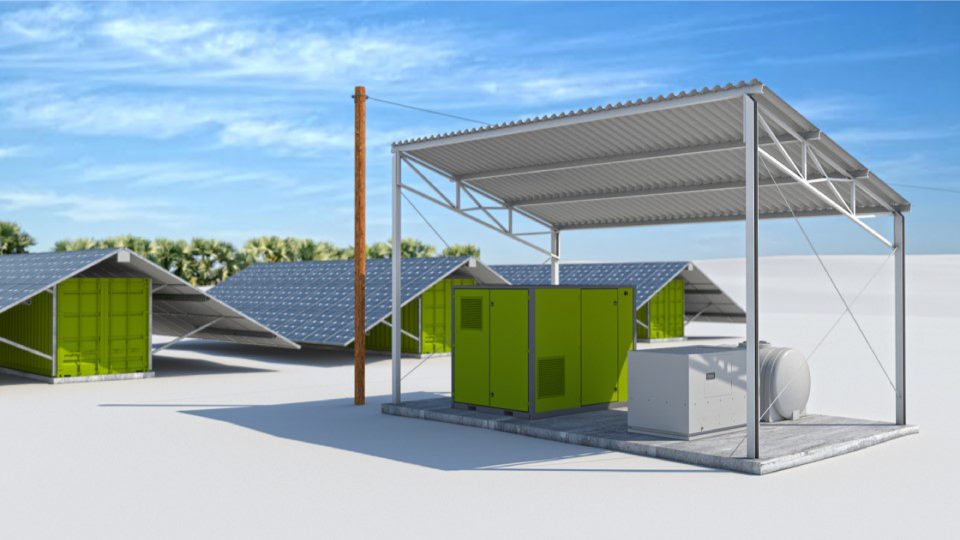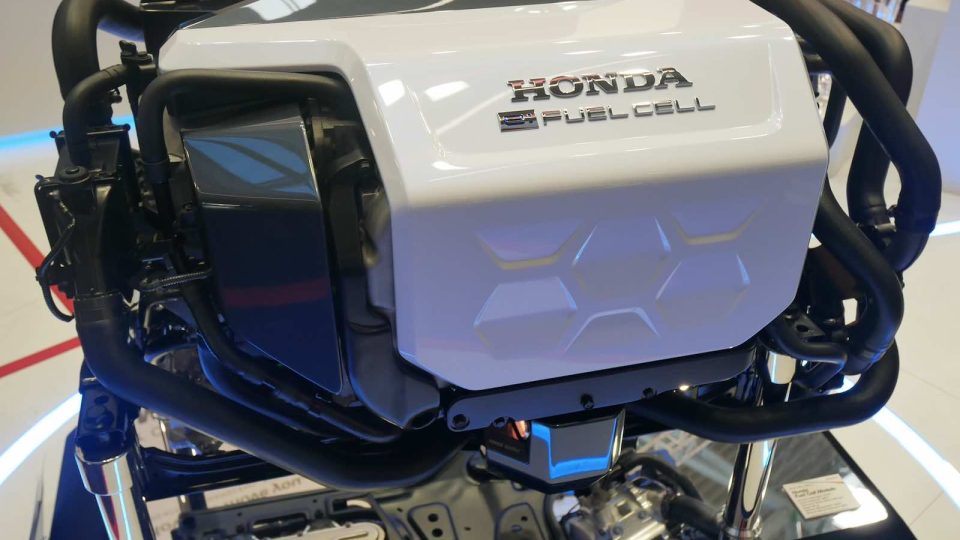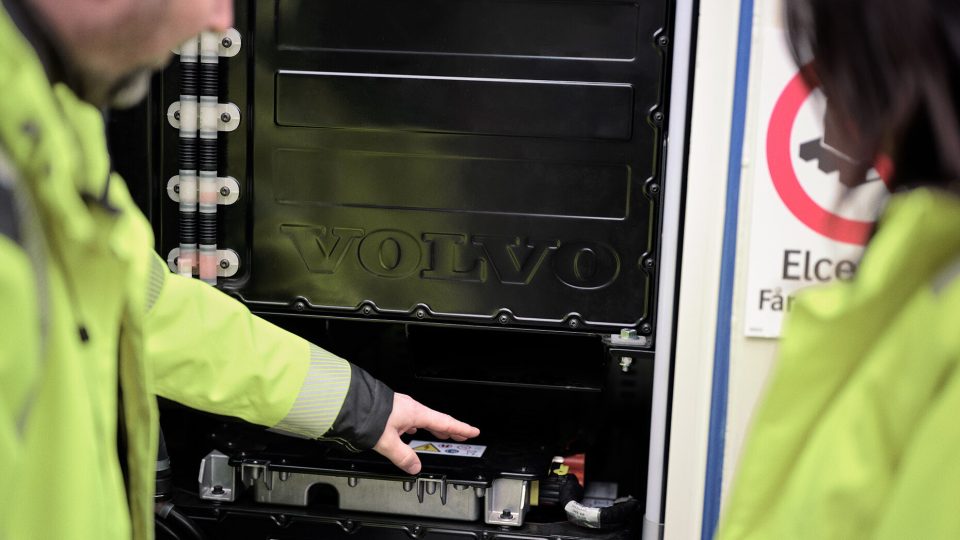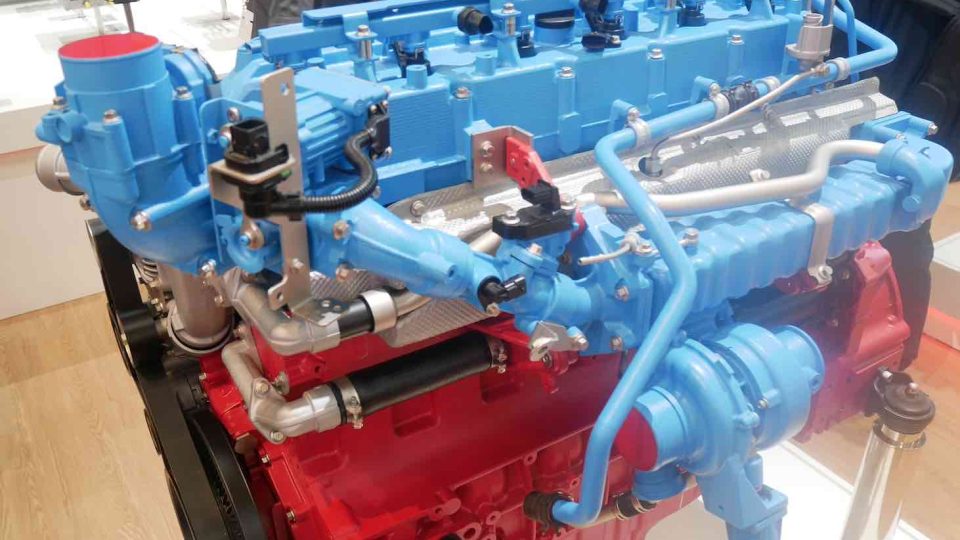A road map for climate neutrality. Rolls-Royce Power Systems unveils the plan to reduce emissions in the next years
By 2030, RRPS aims at cutting greenhouse gas emissions (GHG) by 35 percent compared to the 2019 level through the use of more sustainable technologies. Looking at engine production, quite an important step deals with the production of key mtu engine series – namely, the 2000 and 4000 ones – ready for sustainable fuels from 2023.
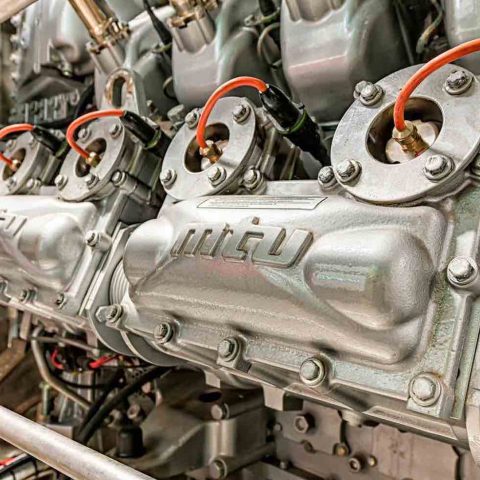
Rolls-Royce Power Systems held a digital press conference to unveil its road map aimed at significantly reduce emissions in the next years and decades. Following the Rolls-Royce group’s decision to be carbon neutral by 2050, the Power Systems division will try to achieve some key targets during the years.
By 2030, RRPS aims at cutting greenhouse gas emissions (GHG) by 35 percent compared to the 2019 level through the use of more sustainable technologies. Looking at engine production, quite an important step deals with the production of key mtu engine series – namely, the 2000 and 4000 ones – ready for sustainable fuels from 2023.
To make as big an impact as possible in the fight against climate change, the first priority of Power Systems is to re-align its product portfolio towards sustainability
Otto Preiss, Chief Technology Officer and COO of Rolls-Royce Power Systems
«The certification means that the new generation of Series 2000 and 4000 engines, that currently account for 85 percent of our sales revenues, will be qualified to run on second-generation bio-fuels and on E-fuels», explained Otto Preiss, Chief Technology Officer and COO of Rolls-Royce Power Systems. The engines are used in a wide variety of applications, for example, in energy supply, commercial shipping, heavy land vehicles, passenger trains and in yachts.
Rolls-Royce and emissions reduction: the ‘Pathway to Net Zero’
Rolls-Royce Power Systems is setting strong milestones with ‘Net Zero at Power Systems’, which follows on from the Rolls-Royce parent company’s ‘Pathway to Net Zero’ programme. In total, the Power Systems products sold in 2019, the year before the pandemic, will generate some 109 million tons of greenhouse gases over their service life in the field – almost double that emitted by the Greater London region every year.
Potrebbe interessarti
Rolls-Royce to invest in energy start-up Kowry Energy and expand mtu US Aiken plant
«We want to shape the future as a responsible part of the society», said CEO Andreas Schell during the press conference. «We have defined a clear roadmap until 2030 also because customers now require more sustainable products. We expect the demand for engines and systems to increase and more than 20,000 engines will be sold per year so we believe it’s time to transform our company and take all this as a growth opportunity».
A multi-pillar approach
Rolls-Royce Power Systems is taking a multi-pillar approach to reducing emissions. Besides using sustainable fuels, the Rolls-Royce business unit is also building on new technologies such as CO2-free fuel cell systems. From 2025, these will be used in power generation solutions – from balancing energy for compensating fluctuations in the public grid to continuous power and the provision of emergency power in, for example, hospitals and data centers.
On top of that, development engineers are also working on engines powered by hydrogen and methanol as well as on concepts for decentralized Power-to-X systems. Other sustainable solutions such as battery energy storage systems, hybrid propulsion systems for marine and rail applications and microgrids already feature in the Power Systems portfolio for decentralized, environmental-friendly power solutions.
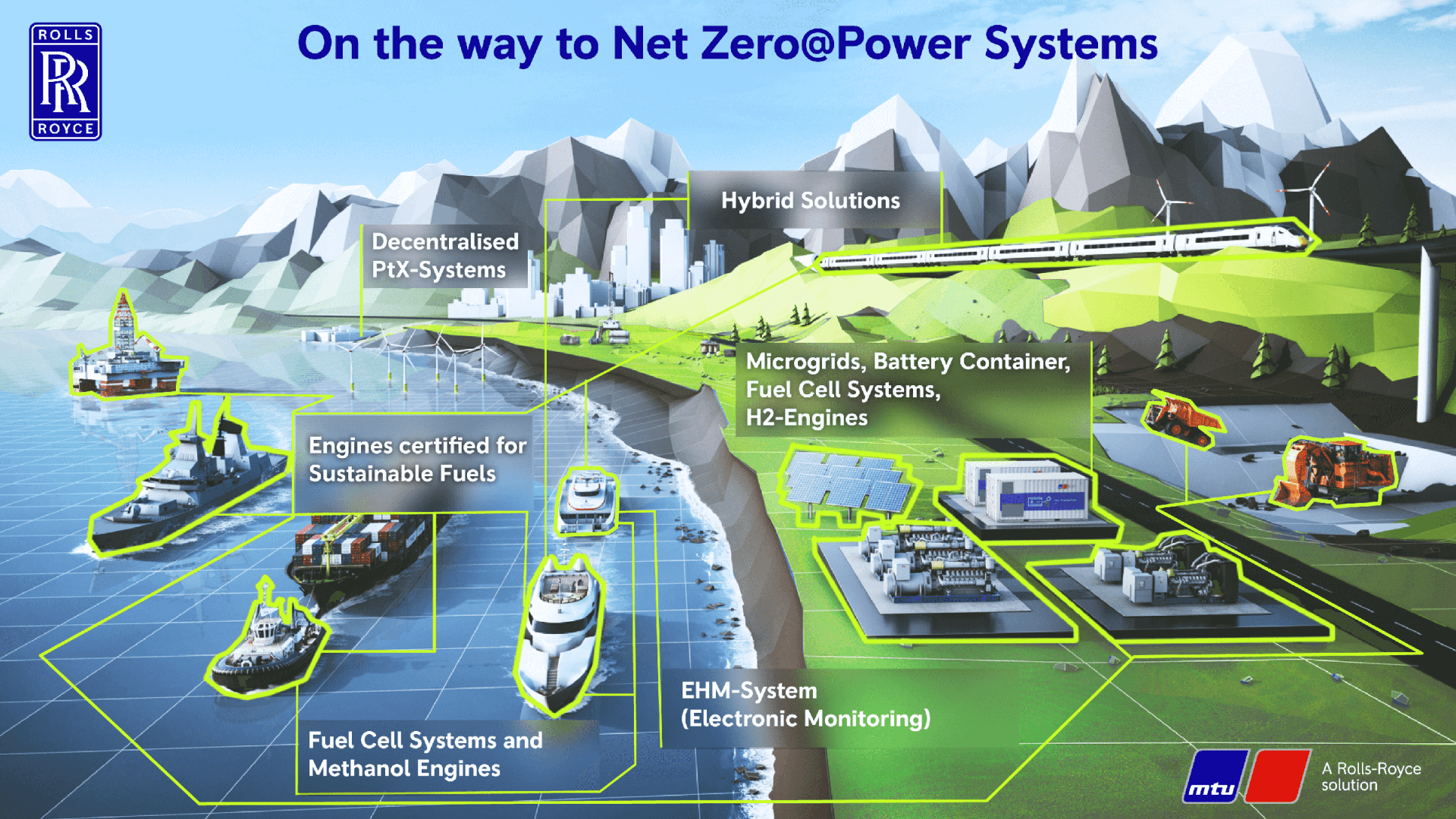
Quite a long process
«We are confident because we’ve not started today, but rather in 2015», explained Daniel Chatterjee, Director Technology Strategy & Regulatory Affairs. «It is not a coincidence we have been analyzing GHG emissions and CO2 footprint also in our facilities and we were able to reduce emissions by 20 percent from 2014 to 2020 thanks to photovoltaic, CHP, e-mobility, energy efficiency. The overall sustainability framework is based on the Paris climate targets: limit global warming to 1.5 degrees».
Re-aligning product portfolio towards sustainability
«To make as big an impact as possible in the fight against climate change, the first priority of Power Systems is to re-align its product portfolio towards sustainability. That’s the area we’re concentrating on at present because that’s where we see the biggest potential for cutting greenhouse gas emissions. But this year will also see us setting milestones for gearing our production and value chain to long-term climate neutrality», explained Otto Preiss, who answered one of our questions about retrofit operations from fossil fuels system to sustainable systems.
«We believe it’s a valuable way to reduce emissions of engines that are in operation. In order to make them suitable for more sustainable fuels, some interventions need to be carried out, but often it’s not necessary to replace the engine. We are carrying out some tests and we’re quite confident about this was to achieve better results».

